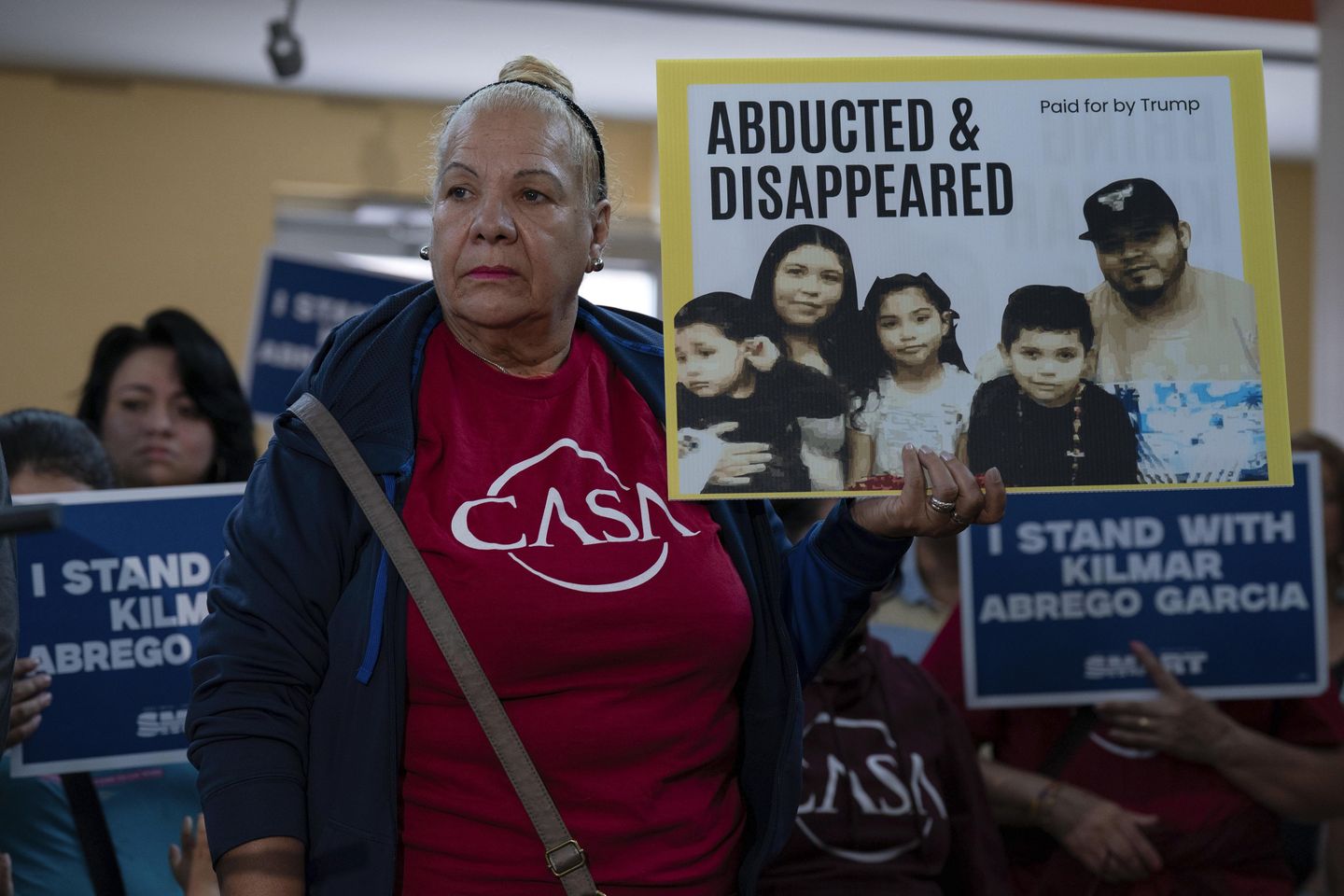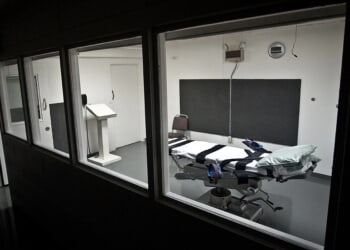
Kilmar Abrego Garcia, the man the U.S. wrongly deported and who is now the subject of a major court battle, is “alive and secure” in a terrorism prison in El Salvador, the Trump administration said Saturday.
Michael Kozak, a senior State Department official, said Mr. Abrego Garcia is being held under the “sovereign, domestic authority of El Salvador.”
That implication is that Mr. Abrego Garcia is not being held under U.S. law, but rather El Salvador’s law.
That’s the most information the U.S. has provided publicly about Mr. Abrego Garcia since he was deported nearly a month ago — wrongly, as the White House now admits.
A day earlier, a government lawyer had been unable to tell a judge where the man was.
“Where is he, and under whose authority?” U.S. District Judge Paula Xinis demanded
“I do not have that information,” said Drew Ensign, the government’s new lawyer on the case.
“So then there is no evidence as to where he is today, and that is extremely troubling,” the judge concluded.
She has ordered that the U.S. try to bring Mr. Abrego Garcia back — something the White House has said will not happen.
The Supreme Court earlier this week largely upheld the judge’s ruling, though the justices said she needed to be wary of trampling on President Trump’s foreign policy powers.
Mr. Abrego Garcia’s lawyers argue that the U.S. is paying El Salvador to hold him, and U.S. officials seem to have access to the prison, so it should be able to orchestrate his return.
Saturday’s new information may undercut that, suggesting that he is in fact, being held in El Salvador’s Terrorism Confinement Center on that country’s own say-so.
The administration says Mr. Abrego Garcia is a member of MS-13.
He was in the U.S. illegally and was ordered deported by an immigration judge in 2019. But that judge also found that he faced a risk of torture or persecution if he was sent back to his home country of El Salvador.
That meant that while he could be deported, he couldn’t be sent back to El Salvador.
Yet he was sent back, as part of more than 200 gang suspects the U.S. ousted on March 15. Most were Venezuelans suspected of being Tren de Aragua members, but some were Salvadoran citizens suspected of being MS-13 members.





![Jasmine Crockett Justifies Mass Illegal Immigration With Bizarre Argument [WATCH]](https://www.right2024.com/wp-content/uploads/2025/03/1742007023_Jasmine-Crockett-Justifies-Mass-Illegal-Immigration-With-Bizarre-Argument-WATCH-350x250.jpg)

![NYC Tourist Helicopter Falls into Hudson River, Siemens Executive and Family Among Those Killed [WATCH]](https://www.right2024.com/wp-content/uploads/2025/04/NYC-Tourist-Helicopter-Falls-into-Hudson-River-Siemens-Executive-and-350x250.jpg)


![Red Sox Fan Makes the ‘Catch of the Day’ with Unconventional ‘Glove’ [WATCH]](https://www.right2024.com/wp-content/uploads/2025/04/Red-Sox-Fan-Makes-the-‘Catch-of-the-Day-with-350x250.jpg)





